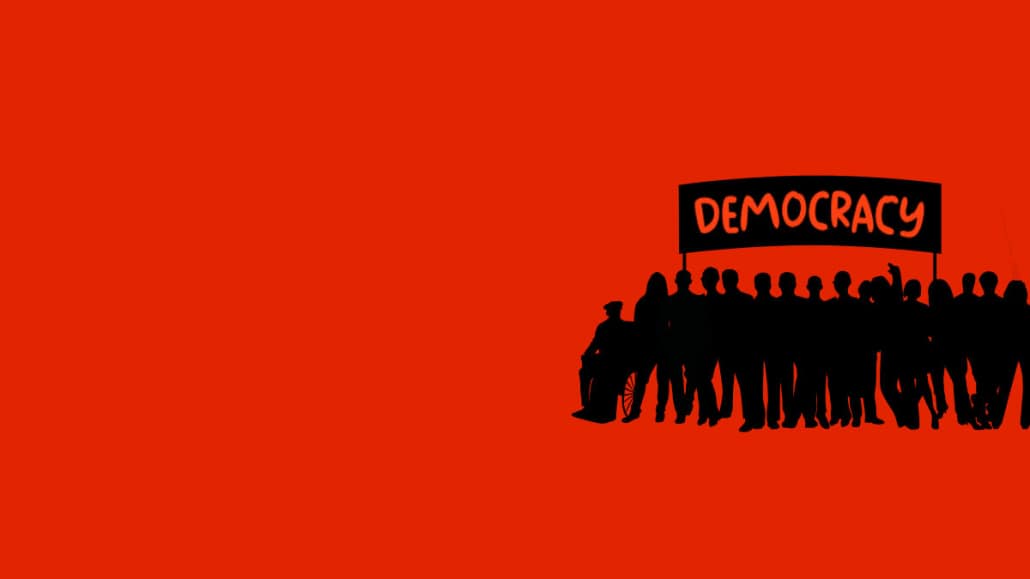Democracy:
- a system of government in which the people of a country can vote to elect their representatives;
- fair and equal treatment of everyone in an organisation, etc., and their right to take part in making decisions.
Democracy, by its very definition, can only work if all people are able to participate in it. Around the world, however, democracy is under increasing threat. Governments are clamping down on dissenters, civic space continues to shrink, journalists and activists are threatened and harmed to prevent them from exposing corruption, and fake news proliferates unabated. These deterrents to public participation, if not checked, will cripple any democracy.
In 2007 the UN General Assembly resolved to observe 15 September as the International Day of Democracy, as a way of promoting and upholding the principles of democracy. The date was suggested by the Inter-Parliamentary Union (IPU), which in September 1997 had adopted its own Universal Declaration on Democracy, a document that sets out the principles of democracy, the elements and exercise of democratic government, and the international dimension of democracy.
In its resolution A/RES/62/7, which establishes the occasion, the UN notes that:
“ …democracy is a universal value based on the freely-expressed will of people to determine their own political, economic, social and cultural systems, and their full participation in all aspects of life.”
This year’s theme is Protecting Press Freedom for Democracy, and it is firmly tied to the notion that for people to be able to participate fully in their country’s democratic systems and processes, they need information to help them make informed choices. Where information is hidden, limited, or twisted to suit a certain agenda, people are excluded, unable to engage with governance issues from a well-rounded point of view and to hold their governments to account. This in turn impacts the realisation of human rights, not least because freedom of expression is itself a fundamental human right, enshrined in Article 19 of the Universal Declaration of Human Rights.
Transparency, therefore, is non-negotiable, and it is what members of civil society organisations and the global media fight for, every day of their lives.
Transparency and open government
The Covid-19 crisis showed us how critical it is for media, activists, and organisations to be able to gather and evaluate facts and fight disinformation – but always keeping safety and security in mind. In South Africa and around the world, the corruption that was exposed during the first stages of the pandemic continues to haunt societies – investigations are ongoing, which consume public funds and resources, and we still don’t have all the answers to our questions.
“The fight against corruption is fundamentally frustrated by anti-democratic practices including censorship, clamping down on free speech, and closed governments who conceal information to facilitate unlawful activities and corruption,” says Corruption Watch’s executive director Karam Singh.
The fight for open government, he says, involves securing and expanding the right to information, which will empower and facilitate the monitoring and detection of irregularities in, for instance, the important issue of how government spends money – such as in public procurement. “The opening up of the public procurement system through publication requirements and transparency, in South Africa in particular, could resolve a fundamental corruption challenge and deepen our democratic commitments.”
Freedom of expression moves democracy forward
The importance of a free press, and a free civil society, therefore, cannot be over-emphasised, and the well-established link between democracy and press freedom is also enshrined in the International Covenant on Civil and Political Rights.
These two sectors, and others, are vital components not only in a space where good governance is the order of the day rather than the opposite, but also in the achievement of the Sustainable Development Goals (SDGs). SDG 16 – Peace, Justice and Strong Institutions, for instance, cannot come to fruition without their involvement.
The UN notes that the police and judiciary are among the institutions most affected by corruption, and with regard to the former, Corruption Watch sees this in our community work and in the reports we receive. For the past six years we have conducted extensive public awareness and advocacy campaigns around transparency and merit-based selection in leadership appointments to institutions that support democracy and enforce the law. These institutions were severely weakened during the state capture period.
We have made some encouraging progress, notably in the successful appointment process in 2020 of the auditor-general. We put forward six recommendations which were evaluated by the committee involved in that process and by legal consultants, and the resulting opinion was that our proposals were indeed constitutionally sound.
By demanding transparency and participation, through the avenues provided to us by the principle of freedom of speech, we contribute to a robust and resilient democracy.

